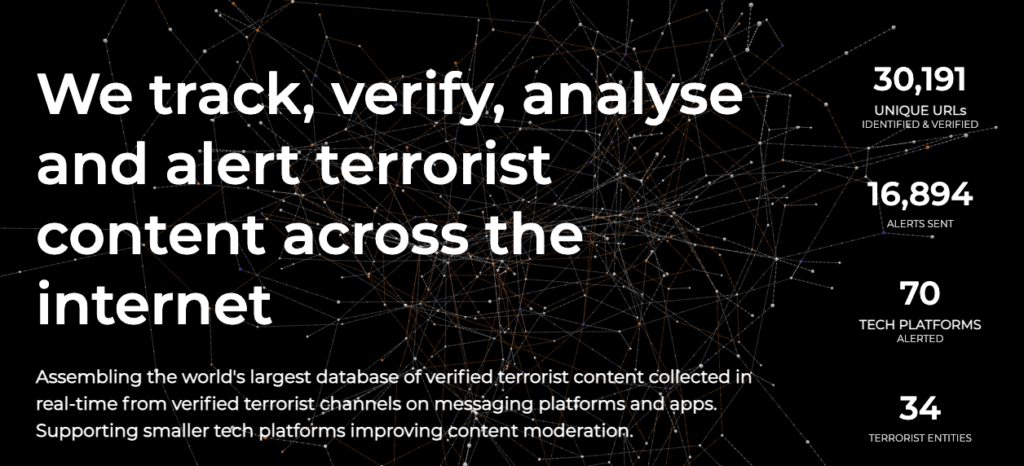Reader's Digest – 4 February 2022
Our weekly review of articles on terrorist and violent extremist use of the internet, counterterrorism, digital rights, and tech policy.
Job Alert!
- We’re looking for an OSINT analyst to join our team. In this role you’ll be supporting our mission of countering terrorist use of the internet while respecting human rights. Find out more and apply here.
Webinar Alert!
- For the first webinar of the 2022 Tech Against Terrorism & GIFCT e-learning series, we take a close look at "The Global Challenges in Moderating Far-Right Violent Extremist Online." This webinar is scheduled for 24 February 2022, 5pm GMT. You can register here! More information about the speakers and the agenda will be shared soon.
We are pleased to also announce the next two webinars of our TAT - GIFCT E-Learning series:
- The Gamification of Extremism: Extremist Use of Gaming Platforms (March)
- Audio Content & Detection: Moderation Challenges and Opportunities with Existing Audio Detection Models (April)

Tech Against Terrorism Updates
- The Tech Against Terrorism Podcast is back for a new series on 15 February! This series will explore the evolving use of the internet by terrorists and violent extremists, how this relates to real world harms, and what can be done by the tech sector to disrupt this threat. Throughout the series, we will speak to academics, counterterrorism practitioners, government and tech sector representatives, as well as human rights advocates for their insights on tackling this complex challenge. Read more about the upcoming series here.
- Anne Craanen, Senior Research Analyst at Tech Against Terrorism, spoke on the RAN podcast about how technology can help RAN practitioners counter terrorist exploitation of the internet and mentioned how the Terrorist Content Analytics Platform can help in this regard. Find the episode here.
- Last week, we published our latest report “The Threat of Terrorist and Violent Extremist Operated Websites.” This report provides in-depth analysis on the hundreds of terrorist operated websites we have tracked over the past year. You can access the report here.
Top Stories
- The government of Canada has released a report titled What We Heard: The Government’s Proposed Approach to Address Harmful Content Online. The report is based on the findings of a consultation by the Canadian Government to seek feedback from Canadians, social media platforms, stakeholders, industry, academia, civil society and others on the proposed regulatory framework to counter harmful and illegal content online.
Tech Against Terrorism has recently updated its analysis of the online regulation landscape in Canada, providing an overview of the proposal legislation on countering harmful content. You can access the blog post here.
- Far-right columnist Michelle Malkin has been removed from Airbnb for attending an American Renaissance gathering, a white nationalist organisation. This is based on Airbnb's policy of removing users who are members of or actively affiliated with hate groups.
- A Norway court has rejected a bid for release by the Norway attacker, who killed 77 people in Oslo and Utøyo on 22 July 2011.
- Philippines has passed a law requiring social media users to register their legal identities and phone numbers when creating new accounts.
Tech Against Terrorism provided analysis of the Philippines’ online regulatory landscape in the 1st edition of the Online Regulation Series, in 2020. You can find it here.
- The U.S. is designating Indonesia-based organisation, World Human Care, for providing financial support to Majelis Mujahidin Indonesia (MMI), an Indonesia-based terrorist group.
- A proposed online regulation bill in Myanmar would impose a prison sentence of up to 3 years as well as fines for use of VPN.
- Russian President, Vladimir Putin, has ordered his administration to consider an apparent new system to ban “toxic” internet content.
Tech Against Terrorism has recently updated its analysis of the online regulation landscape in Russia, providing an overview of the proposal legislation on countering harmful content. You can access the blog post here.
- An American woman, who is alleged to have led an ISIS battalion, has been charged with providing material support to a terrorist organisation.
- Spotify has responded to Joe Rogan controversy by publishing its content rules for the first time, including a plan to label podcasts that discuss COVID-19.
Tech Policy & Counterterrorism
- In Heated meeting, India seeks tougher action from U.S. tech giants on fake news: Indian officials have held heated discussions with Google, Facebook, and Twitter for not proactively removing what they described as fake news on their platforms. This is amid tensions between the Prime Minister Modi’s administration and U.S. tech giants, which has led to the Indian government tightening tech sector regulations. Most recently, the Ministry of Information and Broadcasting (I&B) used emergency powers to block 55 channels on Google’s YouTube platform, and some Twitter and Facebook accounts. The government claimed these accounts were promoting “fake news” or “anti-India” content with disinformation allegedly spread by accounts in Pakistan. Meanwhile, digital rights advocates argue these government orders curb freedom of speech and set a worrying precedent. (Kalra, Reuters, 02.02.2022)
To read more about India’s online regulatory landscape, you can find our analysis in our Online Regulation Series (p. 78) here.
For any questions, please get in touch via:
contact@techagainstterrorism.org


